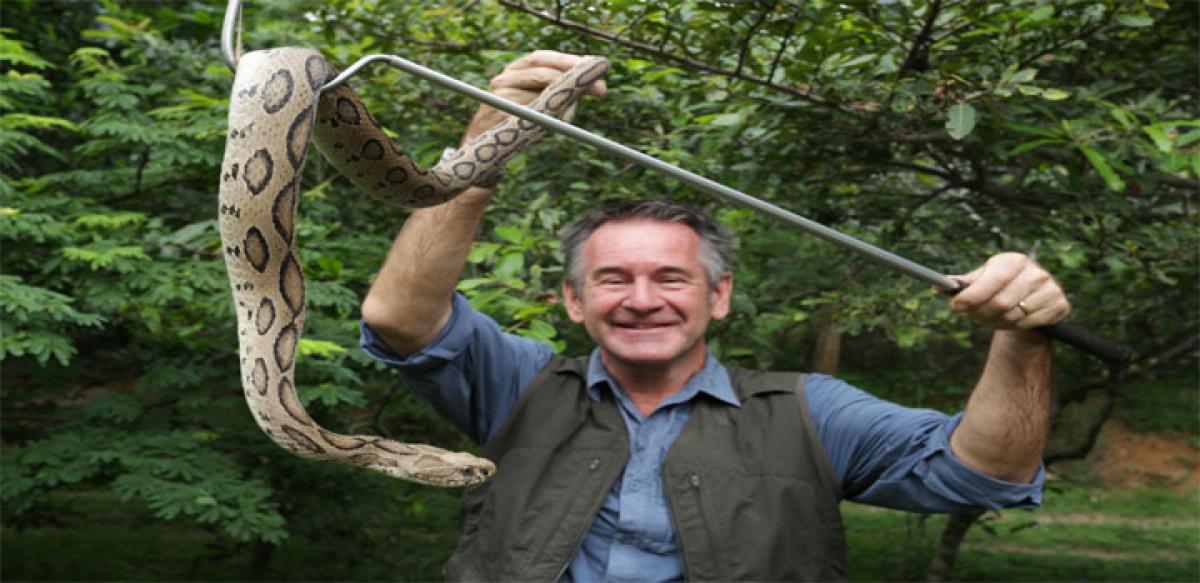Love for the unusual

I\'m not particularly fond of dogs or cats, but unusual animals like snakes catch my attention. Their colours and amazing strategies for survival are a great learning,\"
.jpg)
It is the special love that he feels for the wild animals that made him what he is, says wildlife adventurer Nigel Marven
I'm not particularly fond of dogs or cats, but unusual animals like snakes catch my attention. Their colours and amazing strategies for survival are a great learning,"
says world-renowned naturalist and wildlife TV presenter Nigel Marven, who was on an adventure trip to India to spot some of the country's deadliest snakes.
Wildlife enthusiasts can catch his show "Deadliest Snakes With Nigel Marven" on Animal Planet, spotting the most venomous in the country he visits.
During his India visit, the whip scorpions, which spray vinegar-like substance, found extensively in Western Ghats, and colourful butterflies of the country collecting salt in the mud puddles,
sea snakes of Andaman and the iconic Cobra snakes caught his attention in particular, he said. “There was a lovely scene where one of the most venomous sea snakes in the Andaman islands "was kissing me on the nose."
Some members of the Irula tribe in Chennai, who are experts at catching venomous snakes for the Indian government to make anti-venom,
helped him spot some of the most venomous snakes - which figured in the top three of his deadly list. India, home to over 300 species of snakes, has more than 50 venomous varieties,
but Marven's experience with them has been that unless one really hurts them, Indian snakes do not bite so easily. “Indian farmers walking in their fields know snakes can be very dangerous but understand that it's a part of the eco-system to keep away the rats and mice,” Marven said, adding that it's a thing that he "loves" about India.
"I've noticed a declining number of snakes in many parts of the world. People don't protect what they don't know about. There is a need for more awareness about animal conservation,"
he shared, as he mulled over many years of his experience working with nature and wildlife. India has a "great wealth of wildlife, which needs to be protected," he advised.
He felt that India's younger generation's efforts to protect tigers and rhinos were particularly interesting for him to see, and expressed hope to work in India again to explore more of the country's unexplored "wildlife wealth".
By:Bhavana Akella











